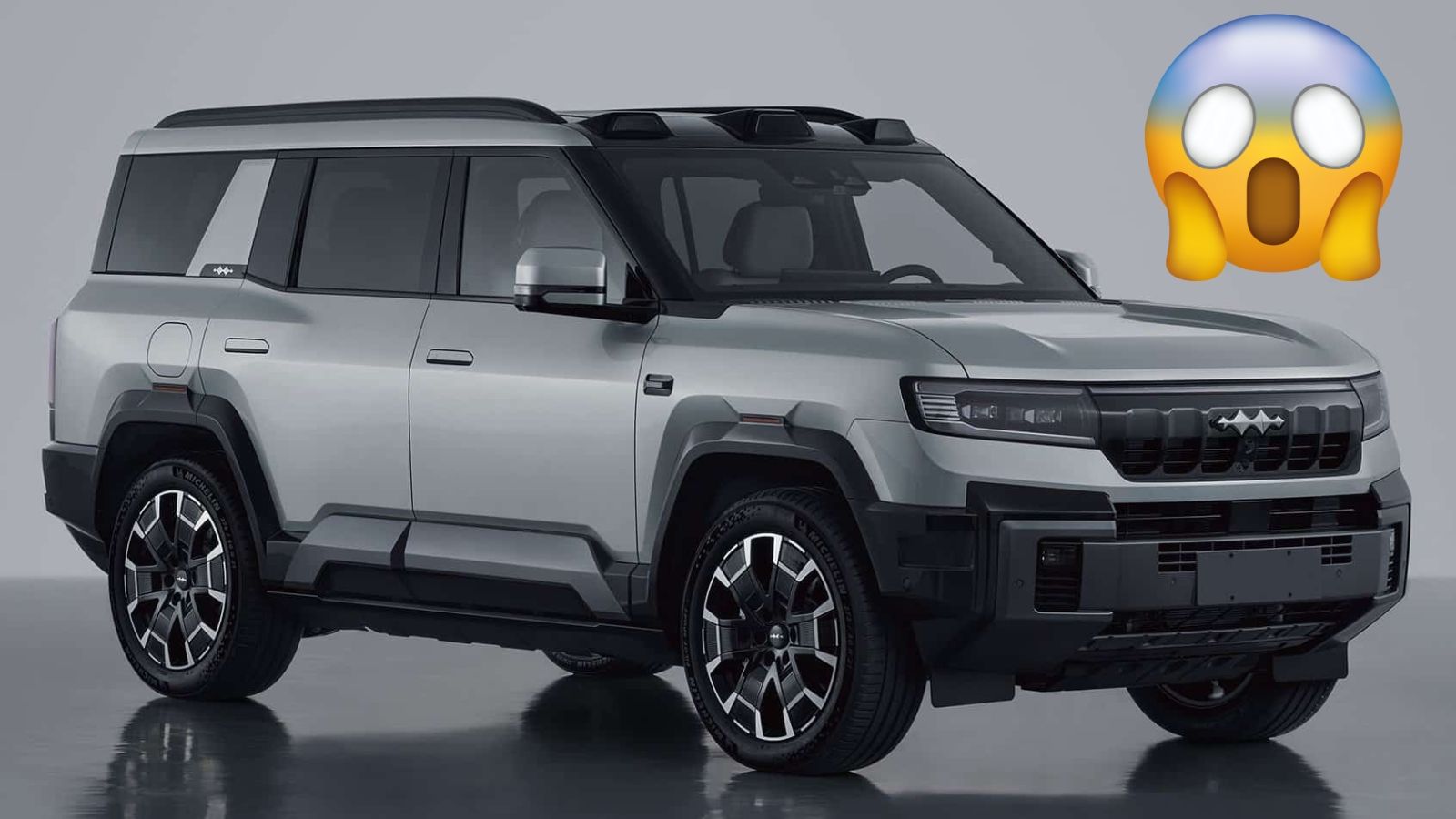Chinese automotive giant BYD is seriously considering bringing its innovative Fangchengbao 3 electric SUV to Australia, potentially reshaping the mid-size SUV landscape down under. This isn’t just another electric vehicle announcement – it’s a glimpse into the future of family-friendly electric SUVs that could rival the beloved Toyota RAV4.
What Makes the Fangchengbao 3 Special?
The Fangchengbao 3, known as the Tai 3 in China, represents BYD’s ambitious entry into the family SUV market. At 4605mm long it’s only 5mm longer than what is currently Australia’s best-selling mid-size SUV, the Toyota RAV4, making it a perfect size for Australian families.
What sets this electric SUV apart isn’t just its dimensions – it’s the futuristic features packed inside. The vehicle comes with an optional drone system that launches from the roof, perfect for capturing those epic Australian road trip moments from above. Think of it as your personal aerial photographer that travels with you.

Australian Launch Plans Taking Shape
BYD Australia reps confirmed to carsales that a business case is underway to determine the B3’s profit potential Down Under. While company spokespeople remain tight-lipped about specific timing, the wheels are clearly in motion for an Australian debut.
The vehicle would likely arrive under the Denza brand name rather than the Fangchengbao badge used in China. BYD’s premium Denza brand is set to launch in Australia later in 2025, creating the perfect opportunity for the B3 to make its mark.
Pricing and Market Position
In China, the Fangchengbao 3 Tai launched in China on March 31 with pricing starting of 220,000 yuan (roughly $A45,000). However, Australian pricing would likely climb significantly due to import duties, compliance costs, and local market positioning.
Industry experts suggest the Denza B3 could arrive with pricing around the $60,000 mark, putting it in direct competition with the new-generation Toyota RAV4 PHEV. This positioning would make it an attractive alternative for families seeking electric mobility without breaking the bank.
Performance and Capability
The Fangchengbao 3 isn’t just about looking good – it’s built to perform. The electric SUV comes with multiple battery options ranging from 65.28 kWh to 78.72 kWh, providing flexible range options for different needs.
Charging capabilities are impressive, with the vehicle supporting up to 237 kW fast charging. This means you can charge from 30% to 80% in just 18 minutes – perfect for those long Australian road trips where charging stops need to be quick and efficient.
Technology and Features
Advanced Safety and Driving Assistance
The Fangchengbao 3 comes standard with BYD’s “God’s Eye” smart driving system, featuring advanced autonomous driving technology. The system includes highway-capable Navigation on Autopilot (NOA) functionality, making long-distance driving safer and more comfortable.
Off-Road Ready
Despite being built on a unibody platform rather than a traditional ladder frame, the Fangchengbao 3 includes multiple off-road driving modes. These include specialized settings for snow, mud, mountain, and sand conditions – perfect for exploring Australia’s diverse landscapes.
The vehicle features independent suspension front and rear, similar to BYD’s Shark 6 ute, along with underbody protection elements designed to handle rough terrain adventures.
Design and Practicality
The Fangchengbao 3 embraces a rugged, utilitarian design philosophy. Its boxy SUV profile features a blacked-out front grille and chunky bumper styling that screams adventure readiness. A barn-style opening tailgate and rear-mounted external storage compartment reinforce its practical credentials.
Inside, drivers will find a floating digital instrument cluster paired with a central touchscreen, while physical controls use an elegant piano-key-style layout. The design balances modern technology with user-friendly functionality.
Specifications Comparison
| Feature | Fangchengbao 3 (Tai 3) | Toyota RAV4 Hybrid |
|---|---|---|
| Length | 4,605mm | 4,600mm |
| Width | 1,900mm | 1,850mm |
| Height | 1,720mm | 1,685mm |
| Wheelbase | 2,745mm | 2,690mm |
| Battery Options | 65.28-78.72 kWh | N/A (Hybrid) |
| Charging Speed | Up to 237 kW | N/A |
| Drive Modes | Snow, Mud, Mountain, Sand | Multiple terrain modes |
| Special Features | Optional drone system | Toyota Safety Sense 2.0 |
Market Impact and Competition
The potential arrival of the Fangchengbao 3 in Australia represents more than just another SUV option. It signals BYD’s serious commitment to the Australian market and could pressure established brands to accelerate their electric offerings.
With its combination of practical family sizing, advanced technology, and competitive pricing, the Denza B3 could appeal to buyers currently considering the Tesla Model Y, upcoming Toyota RAV4 PHEV, or other premium electric SUVs.
What This Means for Australian Buyers
Australian families have been waiting for more affordable electric SUV options that don’t compromise on space or features. The Fangchengbao 3 could fill this gap perfectly, offering:
- Family-friendly sizing comparable to the RAV4
- Advanced technology features typically found in luxury vehicles
- Genuine off-road capability for weekend adventures
- Fast charging for long-distance travel confidence
- Competitive pricing against established competitors
Timeline and Availability
While BYD hasn’t confirmed specific launch dates for Australia, industry insiders suggest the Denza B3 could arrive in late 2025 or early 2026. This timeline aligns with Denza’s broader Australian launch strategy and gives BYD time to complete right-hand-drive development and local compliance testing.
The company’s aggressive expansion plans include launching multiple new models across different segments, with the B3 playing a crucial role in capturing the lucrative family SUV market.
Frequently Asked Questions
Q: When will the BYD Fangchengbao 3 be available in Australia?
A: BYD is currently evaluating the business case, with potential launch in late 2025 or early 2026 under the Denza B3 name.
Q: How much will the Denza B3 cost in Australia?
A: While not confirmed, industry estimates suggest pricing around $60,000, positioning it against the Toyota RAV4 PHEV.
Q: Does the drone feature actually work?
A: Yes, the optional DJI Air 3S drone system is fully integrated and launches from a roof pod for aerial photography and videography.
